Culture methods and matters needing attention of Yulu
[introduction] Yulu is a succulent plant of Liliaceae, which belongs to twelve-volume genera, and there are many varieties and varieties under it. Yulu plant is relatively low, and has multiple functions such as beautifying the room, purifying the air, preventing radiation, protecting eyesight and so on, so it is very suitable for indoor breeding. Yulu is one of the most popular indoor potted ornamental plants in recent years. In terms of its breeding difficulty, Yulu is very suitable for novice breeding.
Yulu's plant type is thick and lovely, but the stems and leaves also have a feeling that can be broken, full and juicy, adorable.
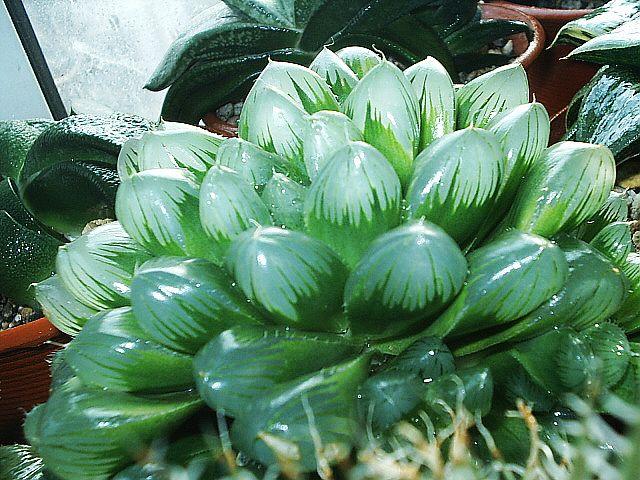
Introduction of Yulu
Basic introduction: Haworthia obtusa var.pilifera is a "soft-leaf" variety in the 12-volume genus of Liliaceae. The department has a wide variety, the more common ones are grass jade dew, jade chapter, Ji jade dew, large jade dew, Mao jade dew, thorn jade dew and so on. Yulu plant is exquisite and small, rich in species, leaf color glittering and translucent, rich in variety, like a living handicraft, very lovely, is one of the popular small succulent plant varieties in recent years.
Morphological characteristics: perennial succulent herbs, the plant is solitary at the beginning, and then gradually shows the shape of community. The fleshy leaves are arranged in a compact rosette, the leaves are thick and plump, emerald green, and the upper half is transparent or translucent, called "window", with dark linear veins. Under the condition of sufficient sunlight, the vein is brown, and there is a small "beard" at the top of the leaf. Racemes loose, florets white.
Growth habits: Yulu is native to South Africa and likes a cool semi-shade environment. It mainly grows in spring and autumn, and is an "intermediate" variety of succulent plants. Drought-resistant, not cold-resistant, avoid high temperature and humidity and hot sun exposure, afraid of shade, but also afraid of soil water.
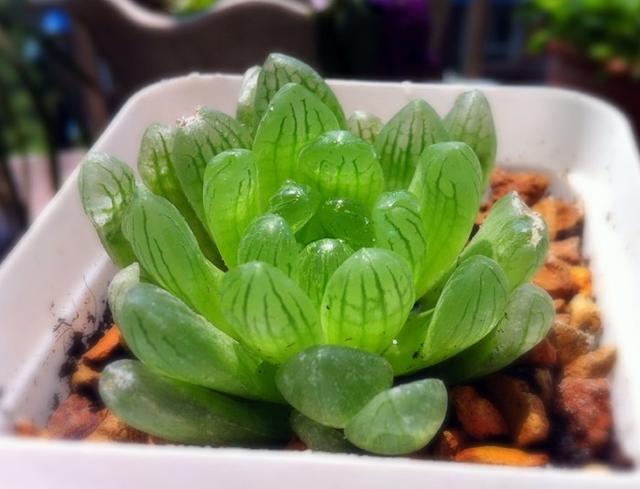
Matters needing attention in culture of Yulu
Soil: the soil requires loose and fertile soil, good drainage and air permeability, contains calcareous, and has thicker particles. Commonly used rotten leaf soil 2 parts, coarse sand or vermiculite 3 parts of mixed soil, and mixed with a small amount of bone powder and other calcareous materials. For high-grade varieties such as Yulu Shoujin and Mao Yulu, they can also be planted with synthetic materials such as red jade soil, orchid stone, phytolith and Samoan soil, but an appropriate amount of peat or peat soil should be added to increase the content of organic matter in the soil.
Lighting: sufficient light should be given during the growing period. If it is too shaded, it will cause loose plant shape, not compact, long and thin leaves, and poor transparency of the "window". If the light is too strong, the leaves will grow poorly, showing a light reddish brown, and sometimes the strong direct sunlight will burn the leaves, leaving ugly stains. The plants growing in the semi-shade will have plump and transparent leaves.
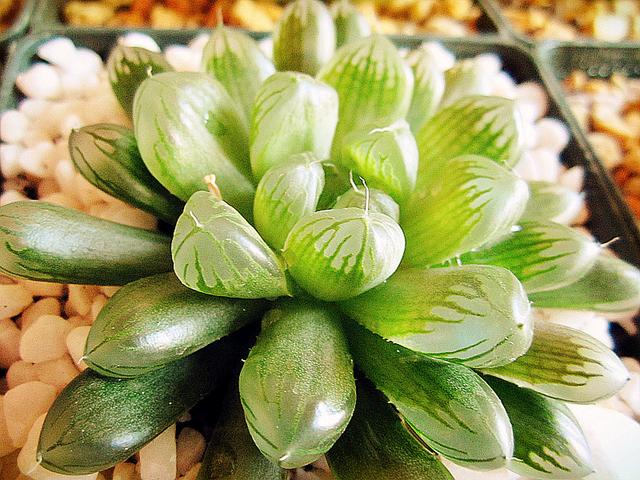
Moisture: water during the growing period to master "do not dry, do not water, water thoroughly", to avoid stagnant water, not to rain, especially not long-term rain, all these are to avoid rotting roots. However, it is not suitable for long-term drought, otherwise the plant will not die, but the leaves are withered, the leaf color is dark, and lack of vitality. Yulu likes the environment with a certain air humidity, and when the air is dry, it can often spray water to the plant and its surrounding environment to increase the air humidity. In the growing season, the plant can also be protected by a transparent colorless beverage bottle with the upper half cut off. Make it grow in a small environment with moist air.
Turn the basin: because the roots of Yulu will secrete acidic substances, resulting in soil acidification, making the roots aging and hollow, the basin can be changed once a year in spring or autumn. If it is found that the growth of the plant is stagnant and the leaves are withered during the growing period, it is likely that the root system is damaged, and the root system should be rearranged in time. When turning the basin, cut off the aging and hollow roots, cut the excessively long roots short, retain the sturdy new white roots, and then plant them with new culture soil. Newly planted plants can be watered frequently, but less watered, so that the plants can resume growth as soon as possible.
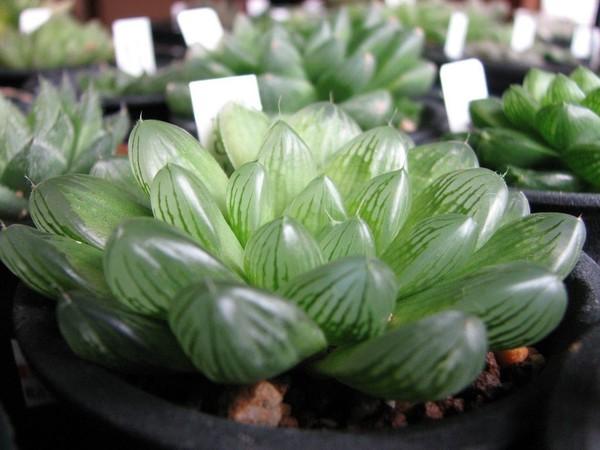
Yulu is a kind of small potted ornamental plant which is suitable for breeding in bedroom, study and office, especially suitable for placing next to computer, which can not only relieve tension, but also protect eyesight, and has multiple functions.
Follow WeChat account: xiaobency shares around 9: 00 every day, and ten thousand people listen to it.
- Prev
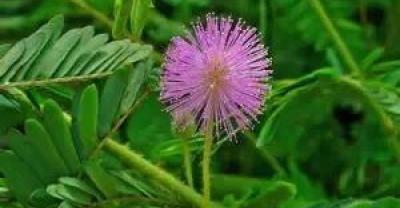
The most complete self-check table of culture parameters
Most of the time, we are talking about management, nutrition, health care and medicine, while the performance of a pig farm depends more on indicators. The production target is direct.
- Next
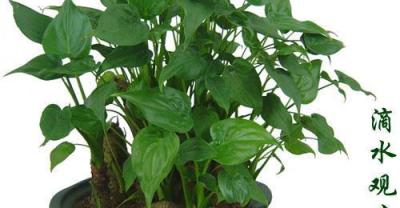
Introduction to the culture method and flower language of cyclamen
Many friends who breed cyclamen may be attracted by its floral fragrance, which has a strong floral fragrance, and it is a natural air freshener when placed indoors. The fairy guest.
Related
- On the eggshell is a badge full of pride. British Poultry Egg Market and Consumer observation
- British study: 72% of Britons are willing to buy native eggs raised by insects
- Guidelines for friendly egg production revised the increase of space in chicken sheds can not be forced to change feathers and lay eggs.
- Risk of delay in customs clearance Australia suspends lobster exports to China
- Pig semen-the Vector of virus Transmission (4)
- Pig semen-the Vector of virus Transmission (3)
- Five common causes of difficult control of classical swine fever in clinic and their countermeasures
- Foot-and-mouth disease is the most effective way to prevent it!
- PED is the number one killer of piglets and has to be guarded against in autumn and winter.
- What is "yellow fat pig"? Have you ever heard the pig collector talk about "yellow fat pig"?

